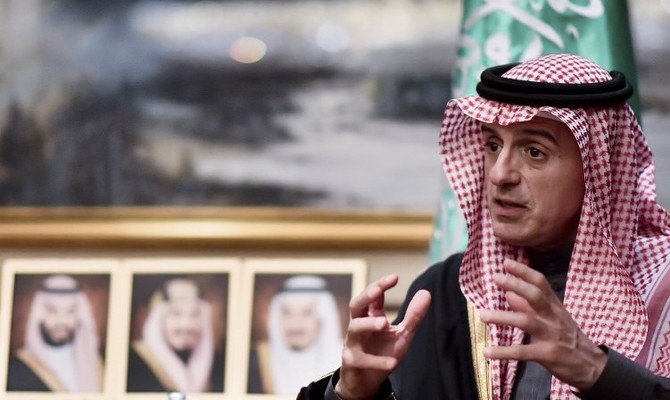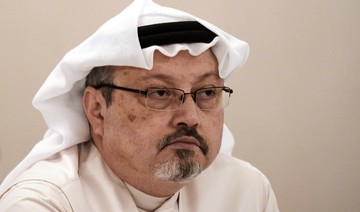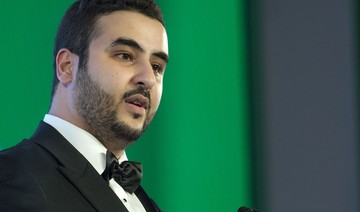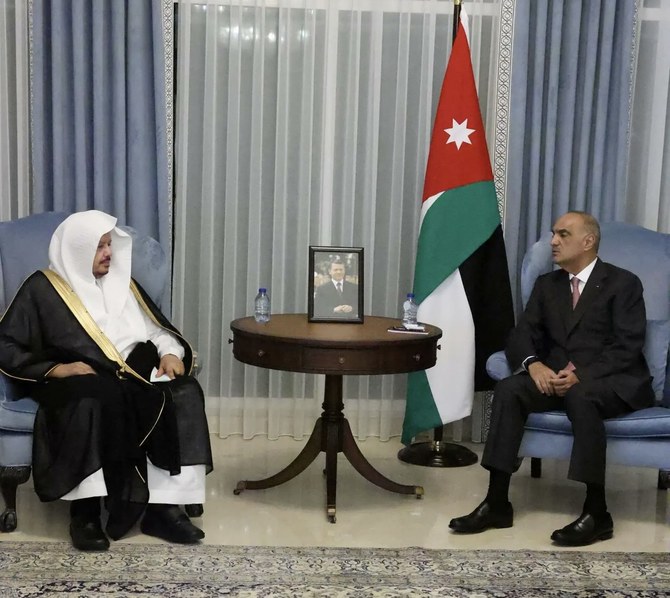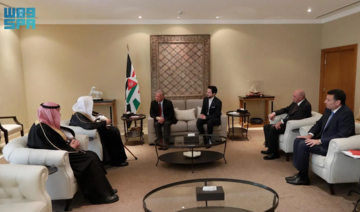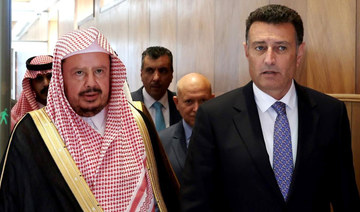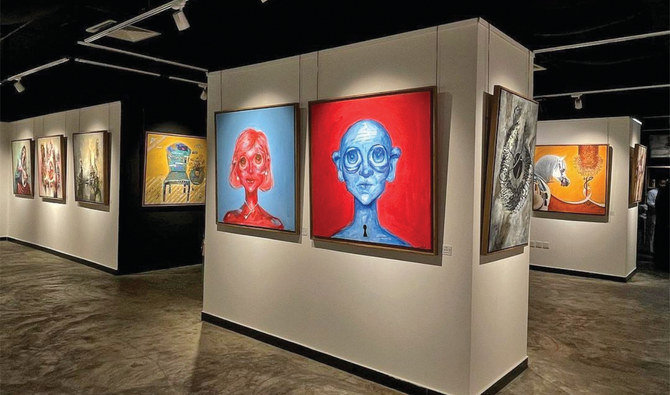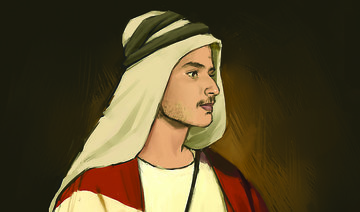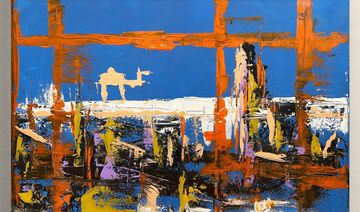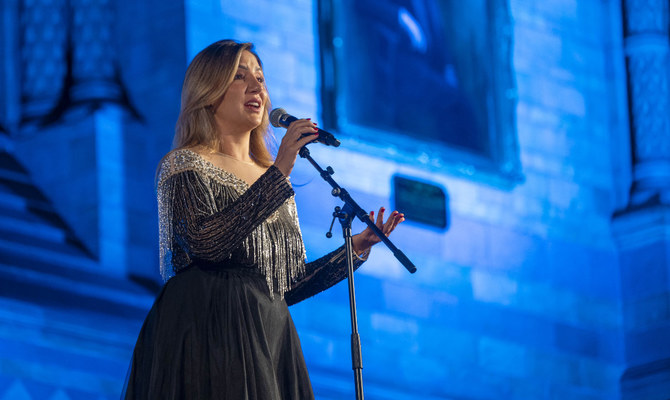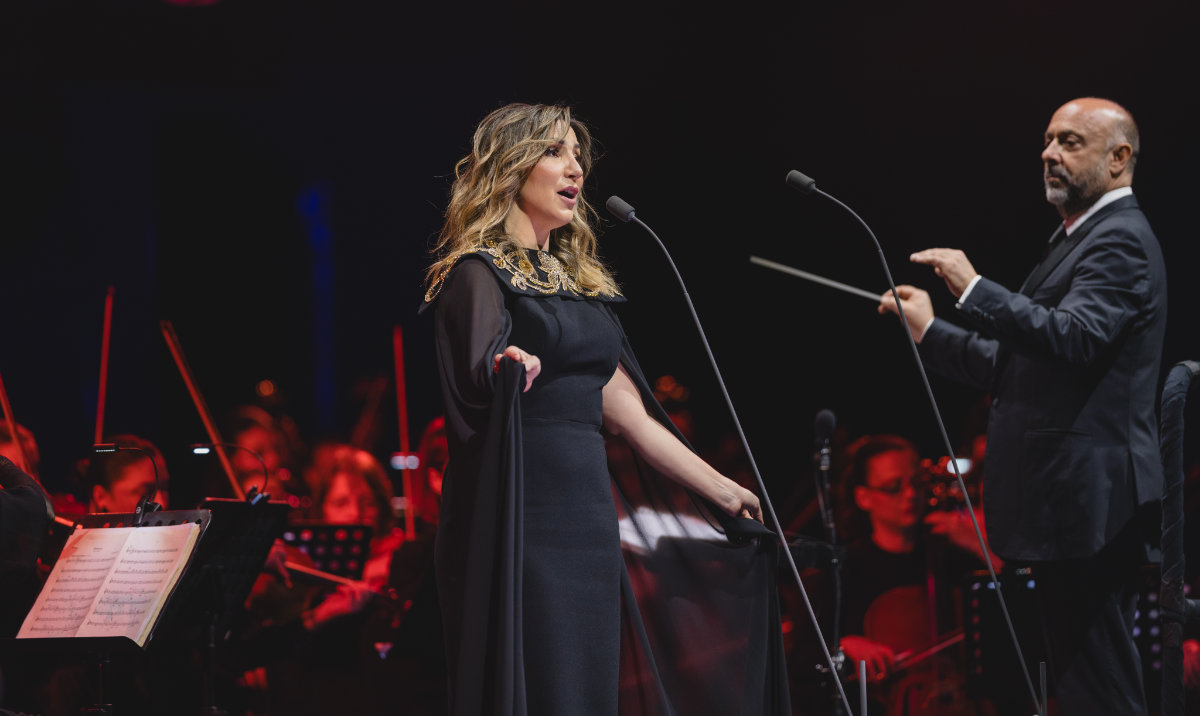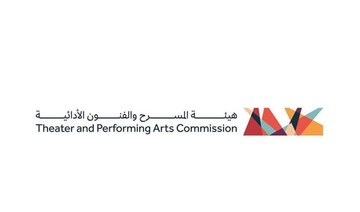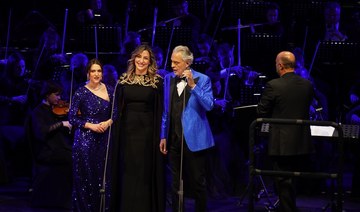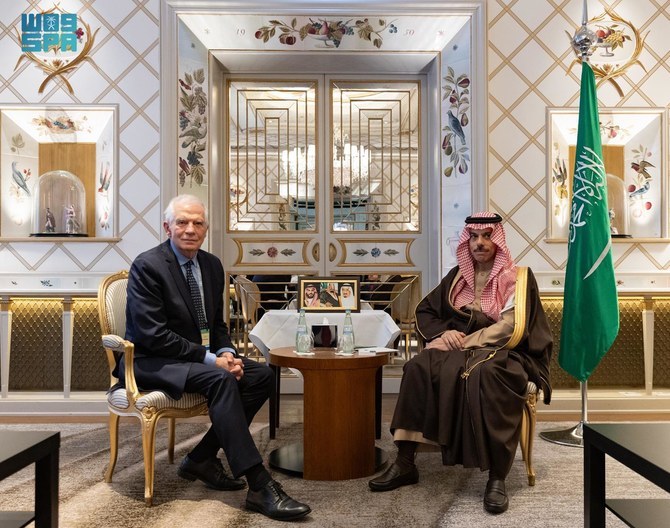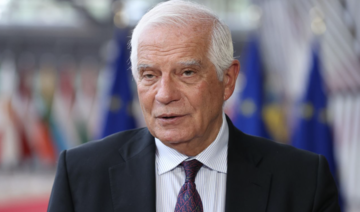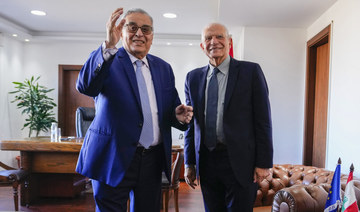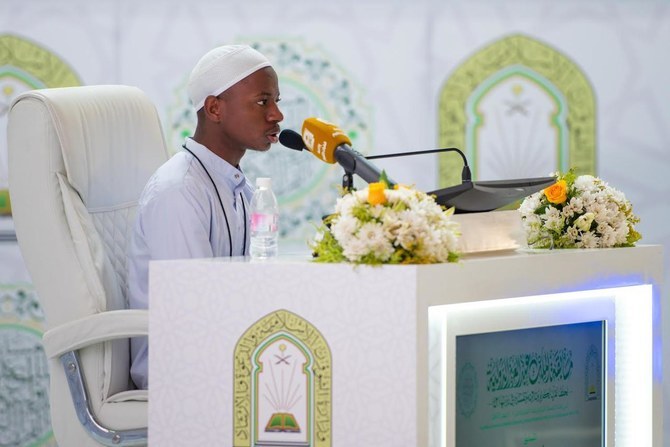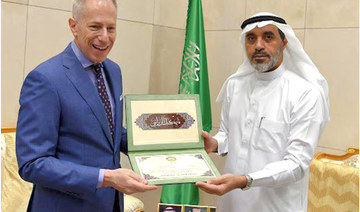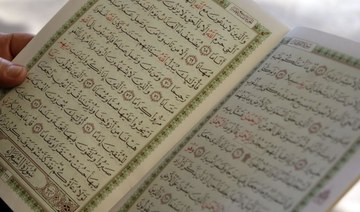JEDDAH: Saudi Arabian Foreign Minister Adel Al-Jubeir has reiterated that the authorities in the Kingdom are more determined than those in any other country that the people guilty of killing Jamal Khashoggi should be held to account.
The death of the Saudi journalist, who was killed in the Kingdom’s consulate in Istanbul on Oct. 2, provoked international outrage. Al-Jubeir said that the pursuit of justice for the slain journalist is first and foremost a Saudi demand, ahead of any call for action from other countries.
In an interview with Asharq Al-Awsat newspaper, the minister said Saudi Arabia was investigating the case because it involved a Saudi citizen, and that anyone with information should contact the Saudi judiciary and pass it on. Saudi Arabia’s public prosecutor is seeking the death penalty for five of 11 suspects so far charged with murdering journalist.
The Kingdom’s top diplomat also talked about the strong links between the Saudi leaders and their people. He said that any attack on the Kingdom’s leadership, represented by King Salman and Crown Prince Mohammed bin Salman, represents a red line and there will be no tolerance of any moves against the leadership or for “any attempts to undermine...our leadership by anyone, under any pretext.”
Where does Saudi diplomacy stand today, after the unprecedented attack on the Kingdom in light of the murder of Mr. Khashoggi?
A: First I would express my deepest condolences to the family of Jamal Khashoggi – may God rest his soul.
As for Saudi diplomacy, Saudi Arabia is a leading country, not only in the Arab and Islamic worlds, but also internationally. Saudi Arabia has always been a bulwark for peace, stability and prosperity in the region and the world. It has always confronted and defeated the forces of evil and destruction. Therefore, and due to what this diplomacy represents, Saudi Arabia stands on firm ground and has a well-founded position, whatever the circumstances and challenges. As for the attacks on the Kingdom after the terrible crime that led to the death of Jamal Khashoggi, the Kingdom’s leadership ordered the public prosecutor to investigate the case and hold all the culprits accountable. Consequently, the Public Prosecution sent the culprits to court. King Salman ordered the formation of a committee headed by the Crown Prince to supervise the procedures in the General Intelligence Presidency and restructure this body to ensure that such crimes will not occur in the future. The Kingdom has taken all necessary measures to achieve justice and hold accountable all those involved in the murder of Saudi citizen Jamal Khashoggi. As for the media campaigns and attempts to politicize this case, those that stand behind these efforts and their motives are now exposed, especially after the transparent announcement of the results of the investigations and the referral of the matter to the courts. Throughout history, the Kingdom has been the target of many media tendentious campaigns, and different sources and arguments were used to undermine the role of the Kingdom and its position.
The United States imposed sanctions on a number of persons. How do you evaluate the US sanctions on the case and how do you see the future of Saudi-US relations?
A: Our relations with the United States are strategic, and we have common and vital interests in terms of the security and stability of the region and the world. The Kingdom’s leadership is keen on maintaining and promoting the strategic relations and the historic partnership with the US, which has spanned over more than seven decades. We also appreciate the interest of the US government and the positions of friendly countries around the world regarding the issue of Jamal Khashoggi and their support for the procedures taken by the Kingdom and its leadership to ensure justice and accountability. As for the imposed sanctions, they were sanctions against individuals and were not targeted at the Kingdom’s government or economy.
How do you see the Turkish statements that highlighted the importance of an international investigation into this case?
A: We reject any attempts to politically exploit Khashoggi’s case, and those who seek justice should submit the evidence they have to the Saudi judiciary, the sole competent body in this case.
In light of the Turkish position, which apparently sought to politicize the issue, how do you see the future of Saudi-Turkish relations?
A: We appreciate the positive Turkish attitude towards the formation of the Joint Task Force. The Kingdom cooperated with the Turkish side, and the Saudi Public Prosecution asked its Turkish counterpart to provide any detailed evidence through three memoranda. Unfortunately, the Public Prosecution has not yet received the requested evidence. We hope that the Turkish authorities will provide the Public Prosecution with the evidence related to the case to be referred to the court. I would like to emphasize that the legal measures that were taken, ensure justice and accountability and thwart any attempts to politicize the case.
As you know, Saudi Arabia and Turkey are two important countries in the Islamic world, linked by historic ties. Unfortunately, some statements made by some individuals in Turkey do not serve this purpose, but rather, they strain these ties. We in Saudi Arabia, do not want this to happen because it will hinder us from addressing important issues, most notable of which is the solidarity of the Islamic World. The Kingdom has put the case of Jamal Khashoggi in its legal framework and it won’t accept any politicization of this issue, because it does not serve the ties between Saudi Arabia and Turkey, nor does it serve cooperation among Islamic countries.
What is your position on the Turkish statements, which stressed that a senior Saudi figure ordered the killing of Khashoggi (in an indirect reference to the Crown Prince)?
A: We have already inquired from the Turkish government – at its highest levels – about these statements and their meaning, and they affirmed that these statements were not made in reference to the Crown Prince. We have informed them that if they have any evidence, they should provide it to the Public Prosecution. we have heard many statements regarding this but the Public Prosecution said that no evidence was presented so far. Our goal is to collect all information and evidence on this issue for the sake of the investigations; and to prevent media influence that does not serve the interest of justice, which is a requirement for all of us.
I would like to highlight here that the Saudi leadership represented by King Salman and Crown Prince Mohammed Bin Salman, is a redline and we will not tolerate any attempts to undermine our leadership from any party under any pretext, because they represent every Saudi citizen.
But media reports in the United States indicated that the US intelligence assessment is that the Crown Prince issued the order. What is your response to this?
A: I have seen the media reports that you are referring to, they are leaks that have not been officially announced, and I noted that they are based on assessment and not conclusive evidence. In all cases, we, in the Kingdom, know that such allegations about the Crown Prince are completely not true and we totally reject them; whether such allegations are made through leaks or otherwise. We also saw how some stories stating that the Saudi ambassador to the United States, Prince Khalid bin Salman contacted Mr. Khashoggi before the latter went to the Consulate, and this is also not true at all and has been firmly refuted, which points to the conclusion that the sources of these leaks are not reliable.
Saudi Arabia has pledged to conduct full and transparent investigations to uncover the truth of the killing of Jamal Khashoggi. The Public Prosecution presented the results of its investigations last Thursday. How do you assess the international reaction to the results of the investigations?
A: The Kingdom has not investigated the death of Jamal Khashoggi for the sake of international public opinion. We investigated it because it is a crime that was committed against a Saudi citizen. This is unacceptable and those who committed the crime must be held accountable. The Public Prosecution announced the preliminary results and that the investigations are still ongoing. The outcome of the investigation so far was enough to indict 11 individuals and refer them to court. There are still investigations with the rest of those in custody. The trial will move forward according to the evidence and confessions obtained.
Achieving justice in this case is a Saudi demand before being an international one, especially that the crime was compounded by the fact that those people presented a false and misleading report about what happened at the Consulate that day.
More than 45 days have passed since the killing of Jamal Khashoggi, yet the location of the body is still unknown, amid conflicting stories and information about what actually happened... Do you know the truth about that?
A: The Public Prosecution issued a statement last Thursday on the results of the investigation based on the evidence and confessions that were obtained. It also confirmed that the investigation is still ongoing. It is important to note that the cooperation of the Turkish side and the provision of their evidence will help in reaching the truth. As the Public Prosecution had stated, its findings are based on its investigations and it hopes that the Turkish side will present all the evidence in their possession.
This brings us back to the subject of the story presented by the Kingdom about the truth of what happened, which has changed several times and the international media shed a light on this point. Is this the final version?
A: What happened was as follows: those who carried out the crime presented a misleading and false report, and accordingly the story was denied. When conflicting reports became apparent that contradicted the information they presented in their report, King Salman ordered the Public Prosecutor to conduct an investigation, which resulted in the preliminary findings that were first announced by the Public Prosecutor. As the investigations continued, and sufficient evidence and confessions were gathered to refer the matter to court; the Public Prosecutor announced the results of his investigation and indicted a number of individuals and referred them to court. Should the investigation uncover any new evidence the Public Prosecution will announce that in a transparent manner.
The Turkish president announced that his country has presented sound recordings to a Saudi intelligence official? Is it true that you have listened to the recordings of Ankara?
A: The Public Prosecution has announced that they did not receive any evidence from the Turkish side, and we hope that the Turkish authorities will provide whatever evidence in their possession, including any recordings, so that the Public Prosecution could provide such evidence formally to the courts. What we seek is to obtain any evidence to achieve justice in this case, in a transparent manner.
Do you fear any repercussion on defence contracts and equipment with some countries? What options do you have in this regard, especially since you are still involved in the war in Yemen and working to confront Iranian threats from your territory?
A: The Kingdom is committed to defend its land, its borders and its people against any regional threats. We always prefer to procure our defence requirements from our traditional allies; as this also contributes to the strengthening of our strategic relations. However, the Kingdom’s responsibility to defend its land and people requires that we secure the necessary defence capabilities regardless of the source.
To what extent will the death of Jamal Khashoggi affect the Kingdom’s relations with its partners around the world, especially in light of what is being circulated on the imposition of sanctions on the Kingdom?
A: The Kingdom’s relations with its partners around the world are strategic and important in terms of facing common challenges and maintaining security and stability in the region and the world. The Kingdom’s partners around the world appreciate its role and position. We are in constant contact with our partners and the Kingdom was the first to take action against the suspects in the murder of Jamal Khashoggi, followed by other countries that imposed measures on some individuals in a way that does not affect the strategic relations or common political and economic interests for Saudi Arabia and its allies.



